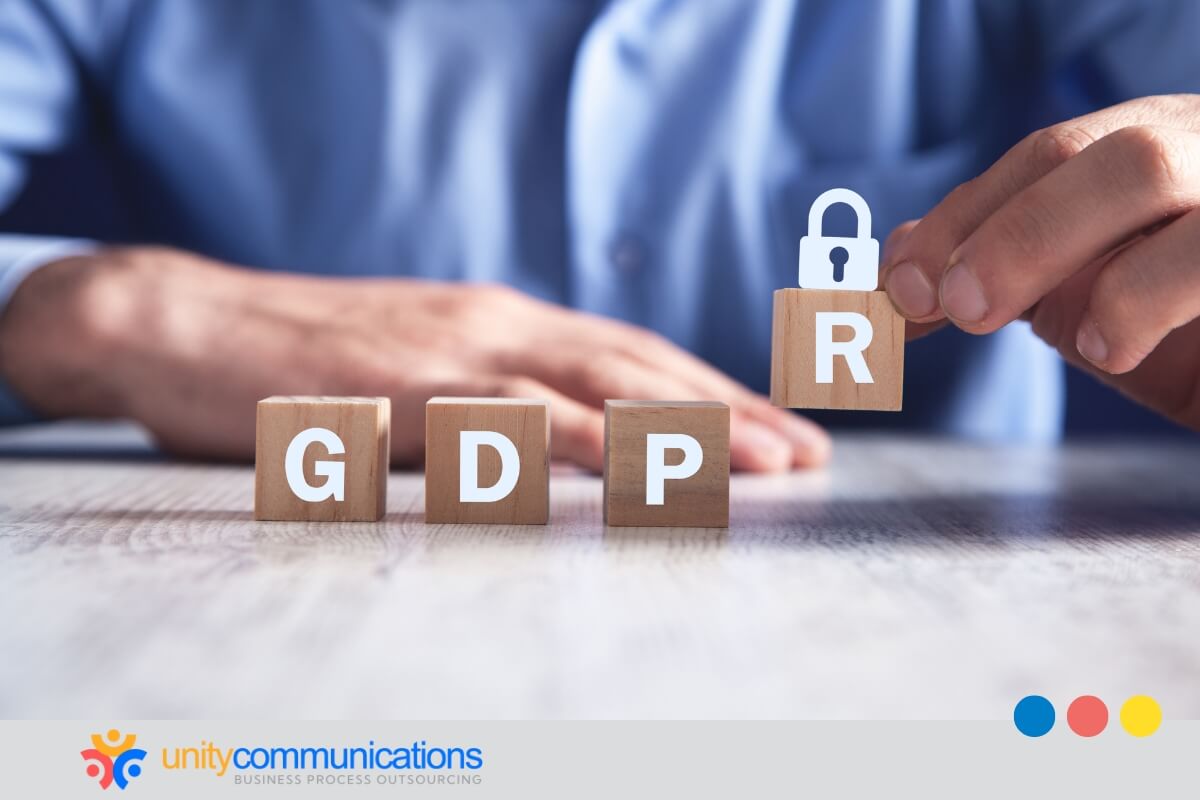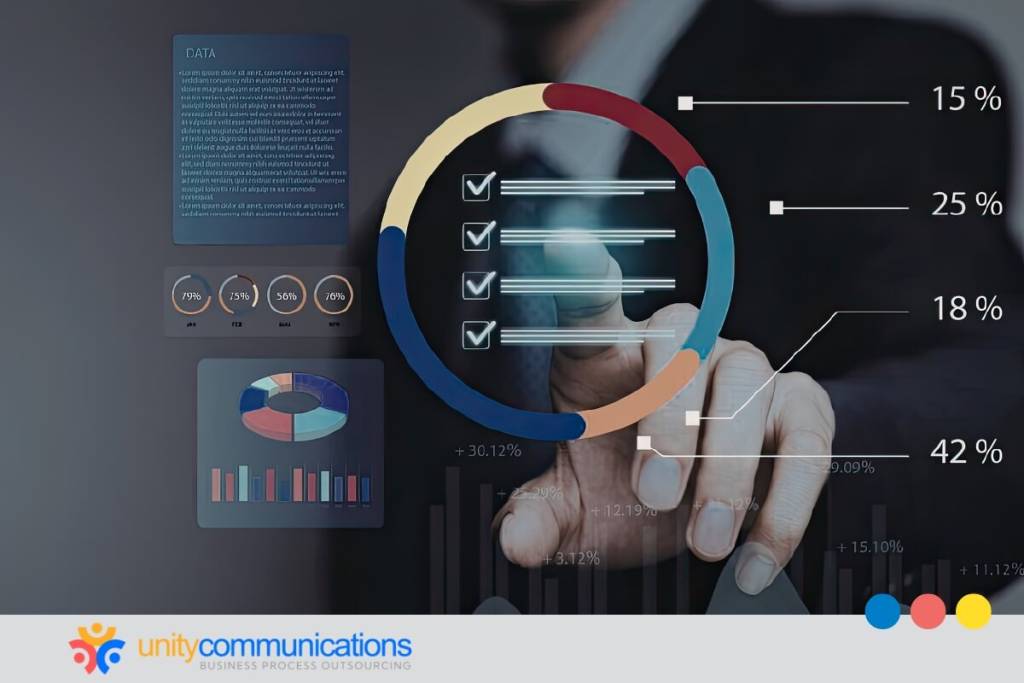IN THIS ARTICLE
Table of Contents
Email marketing continues to be one of the best strategies for increasing engagement and sales, as 88% of people use email daily. Many turn to business process outsourcing (BPO) to leverage this channel effectively. The strategy allows brands to engage with third-party experts who can help maximize marketing efficiency and achieve better results.
When comparing email outsourcing professionals vs. in-house teams, understanding their advantages and disadvantages can inform decisions that benefit your overall strategy.
This article explores the pros and cons of having outsourced email campaigns vs. in-house operations. Keep reading to uncover what works best for your organization, considering your budget, resources, and long-term objectives.
In-house and outsourced email marketing teams: An overview

According to Statista, 4.37 billion people use email worldwide, which will grow to 4.89 billion by 2027. With such a large user base, email presents a significant opportunity for marketing and sales.
When managing email marketing, businesses typically have two options: building an in-house team or outsourcing to external agencies or freelancers. Each approach has benefits and challenges, depending on the organization’s specific needs.
An in-house email marketing team comprises full-time employees who manage every aspect of email campaigns. They are well-versed in the company’s branding, products, and goals, helping them align their tactics with business objectives.
However, building and managing an internal team requires hiring professionals skilled in copywriting, design, analytics, and automation. Companies might gain greater control over campaigns and branding, but an in-house team can be resource-intensive, especially for those with limited budgets.
In contrast, outsourcing email marketing involves partnering with external experts to handle campaign strategy, execution, and analysis. This strategy allows businesses to leverage specialized expertise and industry best practices without the added burden of hiring and training a full-time team.
A cost-effective outsourced partner provides high-quality services, particularly for advanced tasks such as segmentation and automation. With experienced professionals and cutting-edge tools, businesses can significantly improve campaign performance.
Comparing in-house vs. outsourcing teams
While in-house and outsourced email marketing have their respective merits, the decision ultimately depends on the company’s available resources, specific needs, and other factors.
Cost
Cost heavily influences decisions when choosing between email outsourcing experts vs. in-house teams. Outsourcing is an affordable alternative to building an in-house team, which includes recurring expenses such as salaries, benefits, software subscriptions, and training costs.
For instance, hiring a skilled email marketing specialist in the U.S. costs an average of $69,583 annually, excluding additional operating costs. Outsourcing the same role in the Philippines costs an average of $9,043 yearly.
Project-based outsourcing team costs also depend on the complexity and scale of campaigns. This BPO sourcing strategy is more flexible for small business owners with budget constraints.
Expertise and skill availability
Expertise is a key factor when deciding between email in-house teams and outsourcing. In-house teams typically profoundly understand your brand, culture, and goals, allowing them to align email campaigns closely with your company’s values.
However, they might lack access to the latest industry techniques, advanced software, or specialized skills. Training in-house staff to gain these competencies can be time-consuming and resource-intensive, as ongoing development requires significant costs.
Conversely, BPO teams bring specialized expertise in the necessary areas, such as design, strategy, and software development. They update themselves with market trends and best practices so your email campaigns remain competitive.
Partnering with an external agency can give you access to various skills without extensive training. This is particularly beneficial for businesses looking to stay ahead in a rapidly evolving market.
Control and oversight
In-house teams provide businesses with direct control and oversight over email marketing campaigns. This hands-on approach ensures campaigns align closely with the brand’s messaging and allows quicker decision-making. However, managing an internal team can be resource-intensive, often leaving less time for broader strategic planning and growth.
On the other hand, outsourcing email marketing typically requires less direct oversight. This can lead to communication challenges, such as time zone differences or work-from-home setups. Although this can limit the ability to monitor every detail in real time, having clear contracts, regular updates, and performance metrics can address these challenges.
By setting expectations upfront and maintaining ongoing communication, businesses can ensure that BPO teams deliver high-quality results without compromising campaign goals.
Scalability and resource management
Scalability is crucial when deciding whether to manage email marketing in-house or outsource it. Different projects require varying resources, especially during peak seasons such as holidays or product launches.
Due to limited resources or staff capacity, in-house teams might face challenges scaling quickly to meet these increased demands, leading to delays and strain on existing team members. However, outsourcing provides greater flexibility. Agencies can efficiently allocate additional resources or staff so campaigns run smoothly regardless of demand fluctuations.
This makes outsourcing ideal for businesses that require agility and efficiency in managing fluctuating campaign demands. It helps maintain consistent performance without overburdening internal teams.
Technology and tools accessibility
Access to advanced technology is crucial for creating high-quality email campaigns. In-house teams depend on their organization’s budget to purchase automation, analytics, and design tools, which can be costly. For instance, the HubSpot Marketing Hub Enterprise platform costs over $43,000 annually. These investments might be out of reach for smaller businesses.
Outsourcing grants businesses access to premium tools and software without incurring direct costs. Third-party BPO providers often use industry-leading platforms such as Mailchimp, ActiveCampaign, or Marketo for automation and segmentation; Canva or Adobe Creative Cloud for design; and Google Analytics or Tableau for performance tracking and reporting.
Access to these tools can optimize campaigns, making them visually engaging and data-driven. For small business owners or companies with limited budgets, outsourcing can deliver sophisticated email marketing solutions without significant overhead costs.
Flexibility
Flexibility is another area where outsourcing often outshines in-house efforts. External agencies are agile, adapting quickly to changing campaign goals or market conditions. This trait is highly advantageous for companies operating globally, where time zones play a role in reaching diverse audiences.
In contrast, in-house teams might face delays due to internal bottlenecks or competing priorities. However, having dedicated staff ensures campaigns align closely with long-term business objectives, making it a trade-off between flexibility and control.
Security and data management considerations

Data security is a significant concern in email marketing, particularly when handling sensitive customer information. In-house teams offer greater control over data storage and compliance with regulations, including the General Data Protection Regulation (GDPR) and the California Consumer Privacy Act (CCPA).
These laws require businesses to protect customer data, provide transparency about its use, and guarantee user rights, such as data deletion and consent management. However, maintaining compliance demands a robust information technology (IT) infrastructure and ongoing monitoring.
Outsourcing introduces risks related to data sharing and third-party access. As such, businesses delegating email marketing to BPO partners must implement stringent data security measures to minimize risks and maintain customer trust.
The global average data breach cost in 2024 was $4.88 million. Thus, companies must vet agencies carefully. Business process outsourcing agreements must also include strict confidentiality clauses, data protection guarantees, and adherence to relevant regulations.
Factors to consider: Which approach to choose
Choosing email outsourcing specialists vs. in-house teams depends on your business’s needs and priorities. Here are key factors to consider:
- Budget constraints: Assess whether your budget allows for hiring full-time employees or outsourcing to an agency is more cost-effective.
- Long-term goals: An in-house team might be more suitable if your company needs consistent brand alignment over time. On the other hand, if your focus is on short-term projects, outsourcing can provide more flexibility and speed.
- Campaign complexity: Outsourcing to specialized professionals might be the better choice for advanced tasks such as automation or segmentation, as they bring the expertise and tools necessary for these complex tasks.
- Control needs: Consider how much control and oversight you need over the campaigns. In-house teams offer greater involvement, while outsourced teams might provide less day-to-day control.
- Technology access: Think about your access to necessary tools. If your company can’t invest in advanced technology, outsourcing to an agency providing these services could be more efficient.
The bottom line

Choosing email outsourcing vs. in-house operations depends on your organization’s resources, goals, and operational needs. Both approaches have distinct advantages: in-house teams offer control and brand alignment, while outsourcing firms provide flexibility and specialized expertise.
Make an informed choice by thoroughly weighing the pros and cons. Whether you opt for in-house or outsourced solutions, a well-executed email strategy can deliver impressive results.
Let’s connect to discuss how we can help your business optimize your email marketing strategy and achieve measurable growth.





